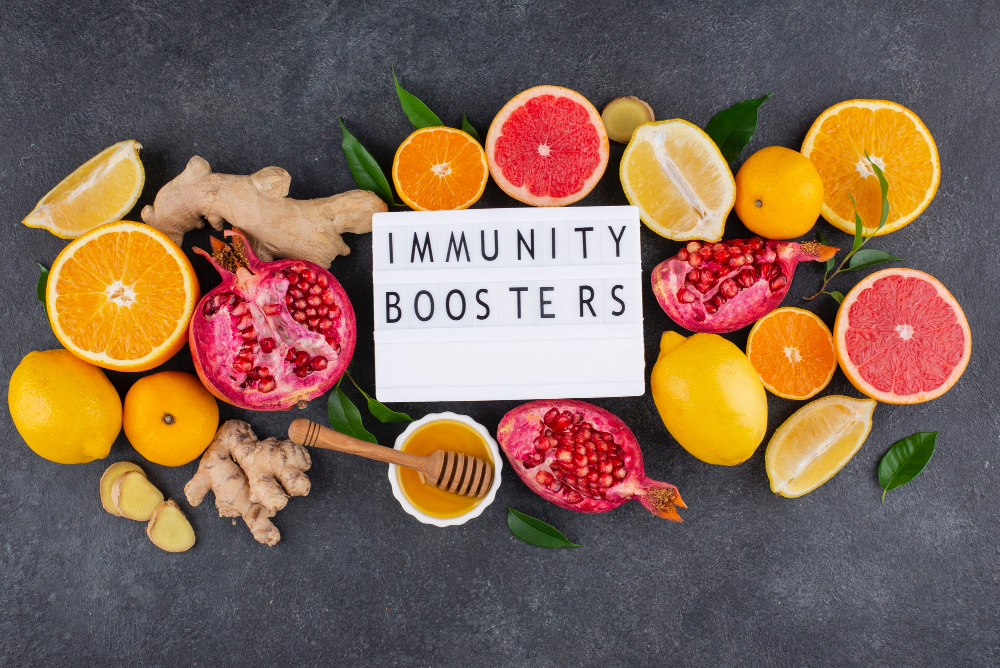What are autoimmune diseases?
Autoimmune diseases are chronic inflammatory diseases that affect different organs. They are the consequence of a immune system malfunction which then defends itself against its own constituents, or against exogenous constituents, as is the case with allergies.
Autoimmune disease can be:
- Organ-specific: The inflammation is then limited to this organ or to a group of particular organs (ex: thyroid gland for Hashimoto’s hypothyroidism, pancreas for diabetes)
- Systemic: Inflammation affects several organs or systems (e.g. lupus, scleroderma)
The causes of autoimmune illness:
The consensus is that there is not a single cause at the source of autoimmune diseases, but rather probably a set of genetic, endogenous (internal), exogenous (external) and environmental factors.
Among the endogenous factors we find: the hormone estrogen or prolactin, chronic inflammation, the intestinal microbiota (greatly affected by our “modern” diet) as well as our environment (endocrine disruptors, additives, pesticides). This is why reducing chemical exposure can be helpful.
Among the exogenous or environmental factors we find: the Epstein-Barr virus and the Cytomegalovirus, smoking and certain anti-cancer treatments that modulate immunity. This is why reinforcing your immune system can be key.
The frequency of autoimmune diseases in the population also increases with age, which is why it is important to review your diet and lifestyle after 30 years old.
Each of these factors constitutes a work angle for our health coaching sessions.
Common symptoms of autoimmune disease:
Each autoimmune is different and the clinical manifestations vary according to the person, the condition, its location or even according to the time, because the symptoms can evolve. Some conditions can exist for years and remain asymptomatic.
Symptoms that may be suggestive of an autoimmune include:
- Abdominal pain
- Generalized chronic pain (lasting more than 15 days or recurrent or cyclical);
- Joint pain
- Swollen nodes
- Headache
- Hair loss
- Fever
- Diarrhea
- Fatigue
- Redness, swelling, inflammation
- Itching
- Mental fog
- Dizziness
- Neuropathy
- Weight loss/weight gain
The most common autoimmune diseases
Immune dysfunctions are the cause of at least 80 diseases!
Here are the most common ones:
- Diabetes
- Autoimmune hepatitis
- Autoimmune anemia
- Goodpasture syndrome
- Myasthenia Gravis
- Celiac disease
- Vitiligo
- Graves’ disease
- Rheumatoid arthritis
- Hashimoto’s hypothyroidism
- Multiple sclerosis
- THE
- Addison’s disease
- Sgjoren’s syndrome
…
Other diseases, just as horrible to deal with and also worsened by inflammation, are called “diseases of immune dysfunction” but do not meet the general conditions to be considered an “autoimmune disease”. This includes for example endometriosis and Adenomyosis, conditions that will respond positively to the same holistic interventions.
How is an autoimmune illness diagnosed?
Depending on the condition in question, the diagnosis is usually made by blood tests (ESR, NFS, and antibodies) to confirm a suspected symptomatic diagnosis.
The treatment of autoimmune diseases
The basic treatments are medications (immunosuppressants, corticosteroids), plasmapheresis or immunoglobulin by blood, or only symptomatic treatments.
From a symptomatic treatment point of view, the goal will often be to restore the function of the affected organ (e.g. thyroid hormone for Hashimoto’s). However, these treatments are not a cure as such. Patients who suffer from autoimmune diseases often report “flare-ups” or unexpected eruption of symptoms, especially after illnesses or in situations of stress.
Being able to learn to manage stress and support your immune system will therefore be a treatment priority. Reducing inflammation will also be important. A complementary natural holistic treatment approach, or even an alternative to medication, is often possible. Lifestyle and nutritional medicine will be important in the management of the condition and its symptoms.
The difficulty with autoimmune conditions is not only to know what to do and what alternative strategies can help, but also to stay the course, in the long term. Lifestyle and nutrition changes must be maintained over the long term in order to bare fruits without setbacks, flare-ups or regressions. This is where health coaching can help.
The holistic treatment of autoimmune diseases:
If we look at our 4 pillars of health, we notice that we will have to work on:
- Your sleep hygiene: A significant lack of quality or quantity of sleep will have an influence on the immune system, but also on inflammation and energy and mood of course.
- Your relaxation: Experiencing pain, symptoms and fatigue all the time can lead you to do too much to compensate when you feel better. This overdoing can lead to an increase in stress and a flare-up of symptoms. So learning to respect your needs, your limits, your body, but also how to communicate these, how to say no, and how to take care of yourself, how to manage stress and relax, will be crucial.
- Your nutrition: A healthy and varied, anti-inflammatory nutrition that supports your digestive system and your immune system can make a big difference! Where your attending physician must leave you after sharing this good advice, the coach takes over to educate you in nutrition, provide resources, and help you concretely implement appropriate nutrition to make it last.
- Your physical activity: Nothing like it for morale, to reduce inflammation and to improve transit and your intestinal flora! Finding the exercise that suits you, which does not add stress and inflammation to your body, and pacing it so as not to overdo it will also be important.
My health coaching process for autoimmune sufferers
A questionnaire of impact of the symptoms before and after which describes:
- The intensity of their different symptoms
- Their impact on their lives
- Which body systems are most affected (muscular/bone, neurological, digestive, skin, cardiovascular, reproductive)
- Their progress over the coaching
- This questionnaire is translated into an impact score on your life.
- We are collaborating to reduce this score through, for example,:
- An entry/diary every day of your nutrition to define any food-problem
- Eat more homemade meals and give preference to certain forms of cooking to reduce inflammation
- Increase the nutritional density of the food ingested to reduce deficiencies and reduce the number of supplements
- Reduce the so-called “fast” sugars and give preference to slow ones, and those of natural origin to reduce inflammation
- Consider (with the agreement of your doctor or naturopath) the replacement of certain medications for a more natural and lighter or cheaper
- alternative.
- Stress management strategies, and a change in lifestyle habits to reduce stress
- Strategies to increase your sleep and its quality
- Experimenting with different physical activities and/or exercises
This process is individual and adapted to each client according to their personality, age, needs, pains and priorities in particular.
What are the benefits of health coaching for the autoimmune?
- More energy
- Less joint pain
- Less headaches
- Fewer supplements to take
- Normalization of the cycle or certain hormones
- Discovery of food sensitivities
- A better mood
- Less mental fog
- Less digestive symptoms
- Stress management strategies
- A lifestyle change you can stick to
So, what do you say? Are you ready for some change?
Ready to replace medications and excessive diets for a lifestyle that is possible to maintain over the distance?
The secret of a life worth living is in every smile, every open hand, every healing touch, every loving connection.
Ready to change your life ?
Find the support, structure, guidance and accountability you need to take back the control of your health, today! Come coaching with me!


